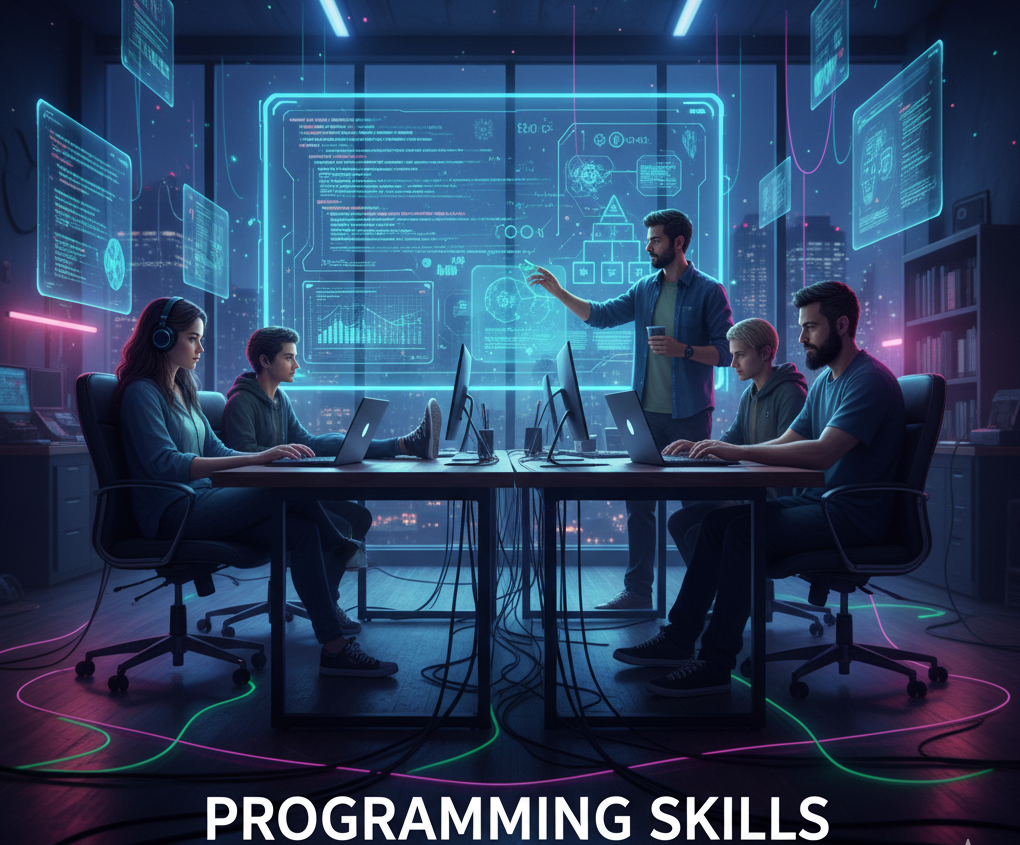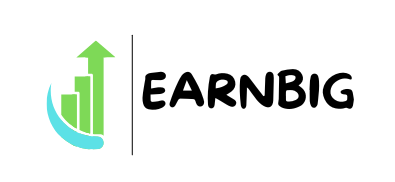Top Programming Skills Every Tech Professional Needs to Get Hired in 2025

The technology landscape is evolving at breakneck speed, and if you’re serious about earning big in the programming world, staying ahead of the curve isn’t optional—it’s essential. Whether you’re a seasoned developer looking to upskill or a newcomer eager to break into the industry, mastering the right programming skills can be your ticket to lucrative opportunities and career advancement.
In this comprehensive guide, we’ll explore the top programming skills that are not only in high demand today but are also positioned to dominate the tech ecosystem in 2025 and beyond. Let’s dive into what you need to learn, why these skills matter, and how you can leverage them to maximize your earning potential.
Why Programming Skills Matter More Than Ever
The digital transformation has created an insatiable demand for talented programmers. Companies across every industry—from healthcare to finance, entertainment to e-commerce—are desperately seeking developers who can build innovative solutions, optimize systems, and drive business growth through technology.
According to recent market analysis, software developers with specialized skills can command salaries ranging from $80,000 to well over $200,000 annually, depending on their expertise and location. But here’s the catch: not all programming skills are created equal. The key to successful programming in 2025 lies in identifying and mastering the skills that offer the highest return on your time investment.
The Top Programming Skills You Need to Master

1. Python: The Swiss Army Knife of Programming
Python continues to reign supreme as one of the most versatile and in-demand programming languages. Its applications span across:
- Data Science & Machine Learning: Building predictive models and analyzing complex datasets
- Web Development: Creating robust backend systems with frameworks like Django and Flask
- Automation & Scripting: Streamlining repetitive tasks and workflows
- AI Development: Powering chatbots, recommendation engines, and intelligent systems
Why it pays: Python developers earn an average of $110,000-$150,000 annually, with senior AI/ML specialists commanding even higher salaries.
Getting started: Focus on mastering libraries like NumPy, Pandas, TensorFlow, and PyTorch. Build real-world projects that demonstrate your ability to solve practical problems.
2. JavaScript & Modern Frameworks
JavaScript remains the backbone of web development, but the landscape has evolved significantly. To stay competitive, you need to master:
| Framework/Technology | Primary Use Case | Market Demand |
|---|---|---|
| React | Building interactive UIs | Very High |
| Vue.js | Progressive web applications | High |
| Node.js | Server-side JavaScript | Very High |
| TypeScript | Type-safe JavaScript development | Rapidly Growing |
Pro tip: Don’t just learn the syntax—understand the ecosystem. Master state management, API integration, and performance optimization techniques that separate average developers from exceptional ones.
3. Cloud Computing & DevOps Skills
The shift to cloud infrastructure has made cloud computing expertise one of the most valuable skills in the programming toolkit. Successful programming in 2025 requires familiarity with:
- Amazon Web Services (AWS): EC2, S3, Lambda, and RDS
- Microsoft Azure: Virtual machines, Azure Functions, and SQL Database
- Google Cloud Platform (GCP): Compute Engine, Cloud Storage, and BigQuery
Beyond the basics: Learn containerization with Docker, orchestration with Kubernetes, and CI/CD pipeline implementation. These skills can boost your salary by 20-30% compared to developers without cloud expertise.
4. Data Structures & Algorithms
While frameworks and languages come and go, fundamental computer science knowledge remains timeless. Strong understanding of data structures and algorithms is crucial for:
- Passing technical interviews at top tech companies
- Writing efficient, scalable code
- Solving complex computational problems
- Optimizing system performance
Investment that pays dividends: Companies like Google, Amazon, Meta, and Microsoft place heavy emphasis on algorithmic thinking during their interview processes. Mastering these concepts opens doors to six-figure compensation packages.
5. Cybersecurity & Secure Coding Practices
With data breaches making headlines regularly, cybersecurity skills have transitioned from “nice-to-have” to “absolutely essential.” Key competencies include:
- Understanding common vulnerabilities (SQL injection, XSS, CSRF)
- Implementing authentication and authorization systems
- Encrypting sensitive data
- Conducting security audits and penetration testing
Market reality: Cybersecurity specialists earn 15-25% more than general programmers, with senior security architects commanding salaries exceeding $180,000.
6. Mobile Development
With over 6.8 billion smartphone users globally, mobile development remains a goldmine for programmers who can deliver exceptional user experiences. Focus areas include:
- Native Development: Swift for iOS, Kotlin for Android
- Cross-Platform Solutions: React Native, Flutter
- Progressive Web Apps (PWAs): Bridging web and mobile experiences
Career insight: Mobile developers with expertise in emerging technologies like augmented reality (AR) and mobile AI integration are particularly sought after.
7. Artificial Intelligence & Machine Learning
AI is no longer futuristic—it’s the present, and it’s transforming every industry imaginable. To capitalize on this trend, develop expertise in:
- Neural networks and deep learning architectures
- Natural language processing (NLP)
- Computer vision applications
- Reinforcement learning
- Large language models (LLMs) and generative AI
The numbers speak: AI/ML engineers are among the highest-paid programming professionals, with average salaries ranging from $130,000 to $200,000+ for experienced practitioners.
Soft Skills That Amplify Your Technical Abilities
Technical prowess alone won’t guarantee success in 2025. Top-earning programmers also excel in these critical soft skills:
Communication: Ability to explain complex technical concepts to non-technical stakeholders
Problem-Solving: Creative thinking and systematic approach to tackling challenges
Collaboration: Working effectively in cross-functional teams and contributing to code reviews
Continuous Learning: Staying updated with emerging technologies and industry trends
Project Management: Understanding Agile methodologies and delivering projects on time
“The best programmers aren’t those who know the most languages—they’re the ones who can learn quickly, solve problems creatively, and communicate their solutions effectively.” — Industry Veteran Insight
Creating Your Personalized Learning Path
Not everyone needs to master all these skills simultaneously. Here’s how to create a strategic learning roadmap:
For Beginners:
- Start with Python or JavaScript fundamentals
- Build 3-5 portfolio projects that solve real problems
- Learn basic data structures and algorithms
- Understand version control with Git
- Explore one web framework in depth
For Intermediate Developers:
- Specialize in one or two high-demand areas (AI, cloud, mobile)
- Master advanced framework features and best practices
- Contribute to open-source projects
- Build complex full-stack applications
- Earn relevant certifications (AWS, Azure, etc.)
For Advanced Programmers:
- Lead architectural decisions on projects
- Mentor junior developers and contribute to team growth
- Stay at the cutting edge of emerging technologies
- Build thought leadership through blogging or speaking
- Explore entrepreneurial opportunities using your skills
Monetizing Your Programming Skills
Once you’ve developed strong competencies, multiple paths exist to earn big:
Traditional Employment: Full-time positions at tech companies, startups, or enterprise organizations
Freelancing: Building client projects on platforms like Upwork, Toptal, or through direct networking (potential earnings: $50-$200+ per hour)
Creating Digital Products: Developing and selling apps, SaaS products, or software tools
Teaching & Content Creation: Building courses, writing technical blogs, or creating YouTube tutorials
Consulting: Providing expert advice to companies on technology strategy and implementation
Staying Relevant: The Continuous Learning Mindset
The programming landscape will continue evolving beyond 2025. To maintain your competitive edge:
- Dedicate 5-10 hours weekly to learning new technologies
- Follow industry leaders and emerging trends on platforms like GitHub, Twitter, and specialized forums
- Attend conferences, webinars, and local meetups
- Experiment with beta technologies and frameworks
- Build side projects that challenge your current skill level
Conclusion: Your Path to Programming Success Starts Today
Successful programming in 2025 demands a strategic combination of technical excellence, continuous learning, and business acumen. By focusing on the top programming skills outlined in this guide—Python, JavaScript frameworks, cloud computing, AI/ML, cybersecurity, and more—you position yourself to capitalize on the most lucrative opportunities in the tech industry.
Remember, the goal isn’t to know everything; it’s to master the skills that align with your career goals and market demand. Start with one or two areas, build genuine expertise, and gradually expand your toolkit. With dedication, strategic learning, and consistent practice, you can transform your programming abilities into a thriving, high-income career.
The technology revolution is creating unprecedented opportunities for skilled programmers. The question isn’t whether you can earn big through programming—it’s whether you’re ready to invest in the skills that will get you there.
What’s your next move? Choose one skill from this list, commit to 30 days of focused learning, and watch how quickly your capabilities—and opportunities—begin to expand.
Ready to accelerate your programming journey? Explore our advanced tutorials on Python mastery, cloud architecture, and AI development to take your skills to the next level.
RELATED :
Breaking Trading News: Market Shifts Every Trader Should Watch in 2025
Top 10 Ways Cryptocurrency and Blockchain Are Revolutionizing Finance and Technology
How to Master Social Media, SEO, and Ads for Powerful Digital Marketing

